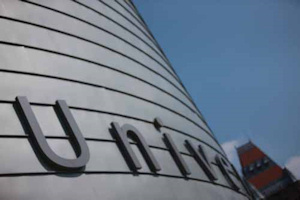Manchester scientists make UK top 100 list
20 Jan 2014
Four University scientists have been named in a list of the country’s 100 leading practising scientists.

The list has been published by the Science Council and includes scientists from both within and outside academia to highlight the diverse roles that UK scientists play.
The four Manchester scientists to make the top 100 list are:
- Professor Dame Nancy Rothwell, President and Vice Chancellor
- Sir Andre Geim from the School of Physics and Astronomy
- Professor Steve Furber from the School of Computer Science
- Professor Jon Lloyd from the School of Earth, Atmospheric and Environmental Sciences
Chief executive of the Science Council, Diana Garnham, said: “Science is like an orchestra. It takes many instruments working together to produce a fine performance. At the moment, almost exclusively, it is the virtuosity of the soloists being addressed and praised. Of course, they are essential to science and should be valued accordingly. However, we must, at the same time, recognise and encourage the many other types of contributory scientific talent and experience.”
To identify its list of 100, the Science Council organised a competition around 10 different ‘types’ of scientist roles. The list of 100 has 10 different examples of each of the 10 types and gives a broad picture of the many different ways people work with science, making valuable contributions across UK society and the economy.
David Willetts, Minister for Universities and Science, said: "This list helpfully challenges the perception that there is only one kind of scientist and highlights the different types of skills and challenges a career in science involves. If we want more people to enter a career in science we need to show that the scientific community is not some exclusive club but people with a wide variety of vocations and interests who have rewarding careers and are making a significant contribution to the wealth and well-being of the UK."
The list is a rich and diverse landscape of examples that includes scientists working to research and develop our future knowledge, others teaching and mentoring future scientists, some who shape policy and campaign on science based issues, those who communicate about science and explain complex scientific issues; others who are successful entrepreneurs and business managers, scientists who ensure the safe and legal application of science services and products as well as scientists delivering services and analysis that supports almost every aspect of modern life.
